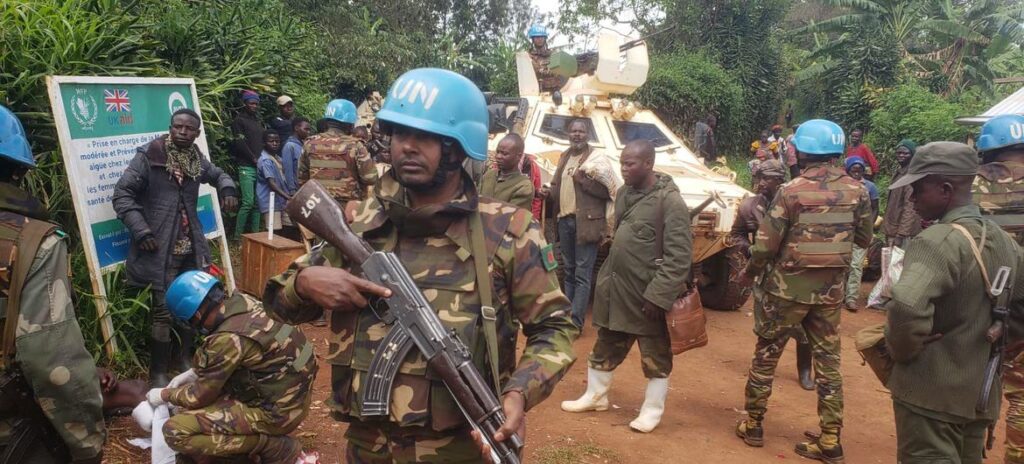The Authoritarian Drift of Trump’s 2025 Presidency
As Donald Trump begins his second non-consecutive term in 2025, political analysts and critics are increasingly sounding the alarm about a clear authoritarian shift in his governance style. While Trump’s first term was marked by unconventional leadership and persistent attacks on democratic norms, his current administration appears more coordinated and deliberate in consolidating power and marginalizing dissent.
Centralizing Executive Power
One of the most striking developments has been Trump’s open moves to centralize executive power. He has pushed for the expansion of the “unitary executive theory,” which argues that the president should have broad control over the entire executive branch, with minimal checks from Congress or the courts. This has included purging federal agencies of career officials perceived as disloyal and replacing them with loyalists who are often underqualified but ideologically aligned.
Attacks on the Free Press
Freedom of the press is also under renewed assault. Trump’s administration has increased efforts to discredit major media outlets, labeling them as “enemies of the people,” while boosting partisan networks and influencers. There have been reports of growing surveillance of journalists, and new legislation has been proposed that could limit whistleblower protections and criminalize leaks more aggressively.
Weaponizing the Justice System
In the legal realm, Trump has signaled his intention to use the Justice Department as a tool against political enemies. The appointment of hardline loyalists to key judicial and prosecutorial positions has raised concerns about the impartiality of law enforcement. Investigations into political opponents, including former officials from the Biden administration, are being framed as efforts to expose “deep state” corruption but appear aimed at settling political scores.
Eroding Voting Rights
Meanwhile, voting rights continue to be eroded. Under the guise of “election integrity,” new laws have been introduced in several states that disproportionately impact minority and urban voters. The federal government has shown little interest in enforcing voting rights protections, and Trump has endorsed calls to limit early voting and mail-in ballots, both of which were crucial in previous Democratic victories.
Anti-Democratic Rhetoric on the Rise
Perhaps most concerning is the normalization of anti-democratic rhetoric. Trump and his allies frequently refer to opponents as traitors, delegitimize court rulings that go against their agenda, and suggest that dissent equates to disloyalty. Combined with a politicized military and law enforcement leadership, these trends reflect a calculated effort to blur the lines between democracy and authoritarian rule.
Conclusion
The direction is clear—and deeply troubling for anyone who values constitutional democracy.
João Lourenço: Angola’s Leader at the Forefront of African Peace Negotiations
President João Lourenço of Angola has emerged as a pivotal figure in African peace negotiations, leveraging his leadership roles to foster dialogue and reconciliation across the continent. His commitment to peace is evident through his mediation efforts in the Democratic Republic of Congo (DRC) and Mozambique, as well as his recent appointment as Chairperson of the African Union (AU).
Mediation in the Democratic Republic of Congo
In recent years, eastern DRC has been plagued by conflict, notably involving the M23 rebel group. At the behest of the AU and regional leaders, President Lourenço initiated the Luanda Process, aiming to de-escalate tensions between DRC and Rwanda, who has been accused of backing the M23 rebels.

This mediation led to plans for direct peace talks between the Congolese government and M23 in Luanda. However, these efforts faced setbacks when M23 withdrew from the talks, citing external sanctions. Consequently, on March 24, 2025, Angola announced its decision to end its mediation role in the eastern Congo conflict, with another African nation expected to assume the responsibility.
Addressing Post-Election Tensions in Mozambique
Beyond the DRC, President Lourenço has shown a vested interest in stabilizing Mozambique, particularly following post-election disputes that have threatened regional stability. In December 2024, during the opening of the eighth Extraordinary Congress of the Popular Movement for the Liberation of Angola (MPLA), he expressed concern over the political instability in Mozambique, emphasizing its detrimental effects on peace, security, and economic development. He urged all parties to engage in dialogue to resolve their differences peacefully.
Leadership within the African Union
In February 2025, President Lourenço assumed the rotating presidency of the African Union. In his inaugural address, he underscored his commitment to prioritizing peace and security across the continent. He emphasized the importance of addressing ongoing conflicts and fostering reconciliation, reflecting his dedication to a peaceful and prosperous Africa.
Advocacy for Global Peace
President Lourenço’s dedication to peace extends beyond African borders. He has consistently advocated for the cessation of global conflicts, including those in Sudan, Ukraine, and Gaza. In various forums, he has called for peace negotiations and respect for state sovereignty, highlighting the interconnectedness of global stability and regional development.
President João Lourenço’s proactive engagement in peace negotiations and his leadership roles within regional and continental organizations underscore his unwavering commitment to fostering dialogue and reconciliation. His efforts contribute significantly to the pursuit of lasting peace and stability in Africa and beyond.
Sources:
- Angola to end east Congo conflict mediation role, presidency says
- Congo and M23 rebel group will hold peace talks on Tuesday, mediator Angola says
- Angola to act as mediator in peace talks between Congo and M23 rebels
- Post-Election Tension: Angolan President Calls for Dialogue in Mozambique
- João Lourenço Takes Over the Presidency of the African Union and Promises to Find Solutions for Peace
- SADC Summit 2024: President Lourenço Reviews Progress as Angola Passes Chair to Zimbabwe
Dictator dashboard blog – the latest on this worlds despots
